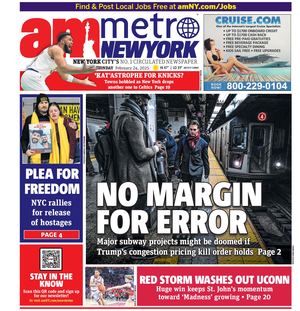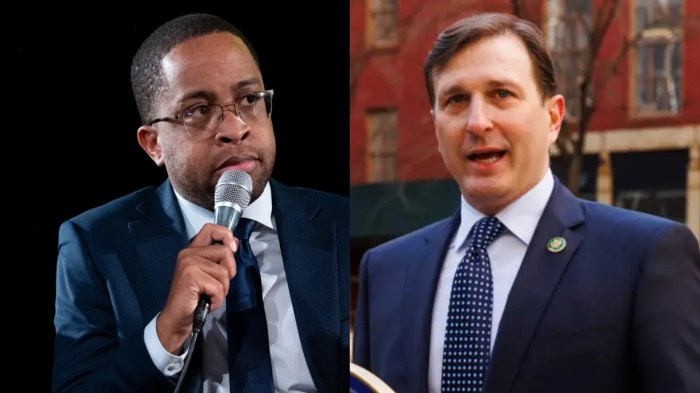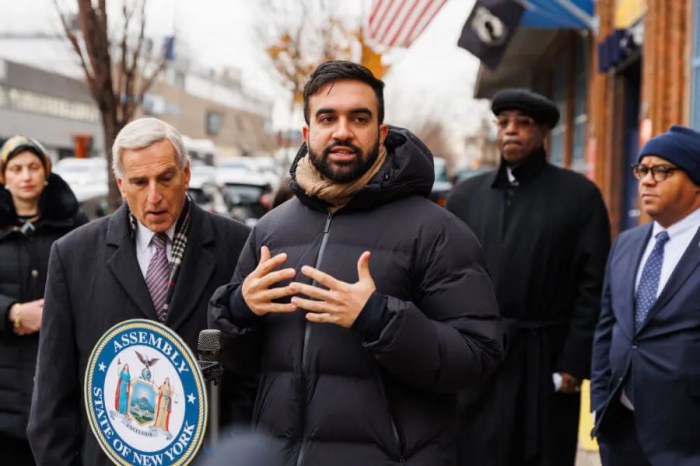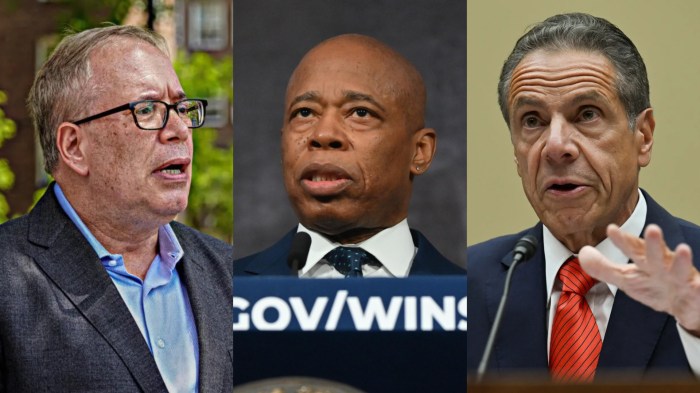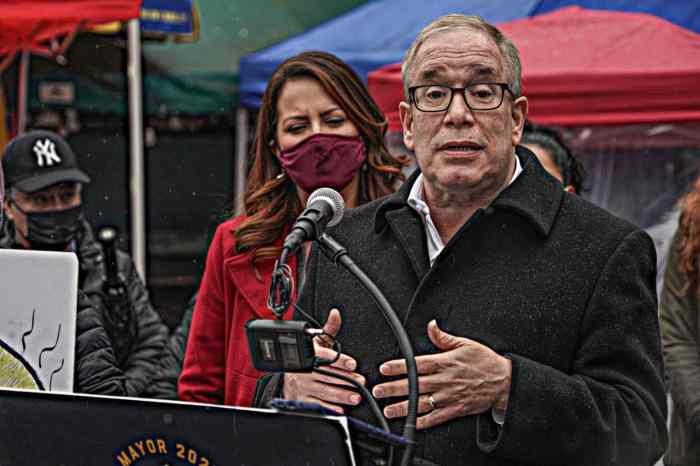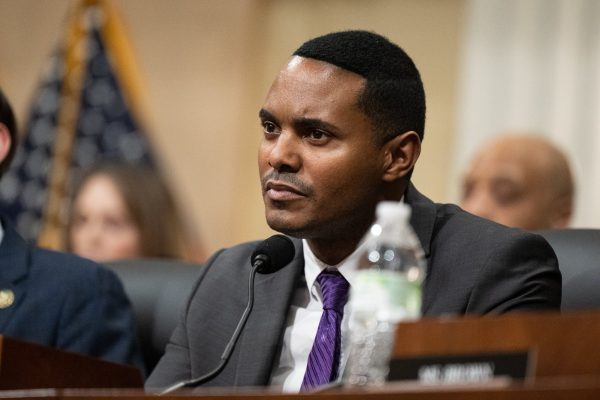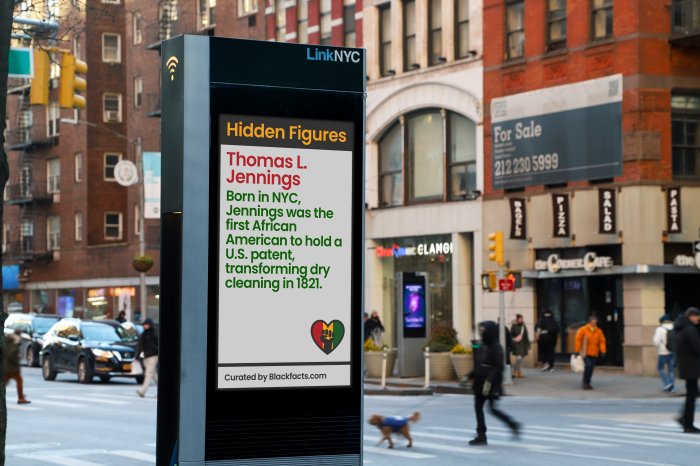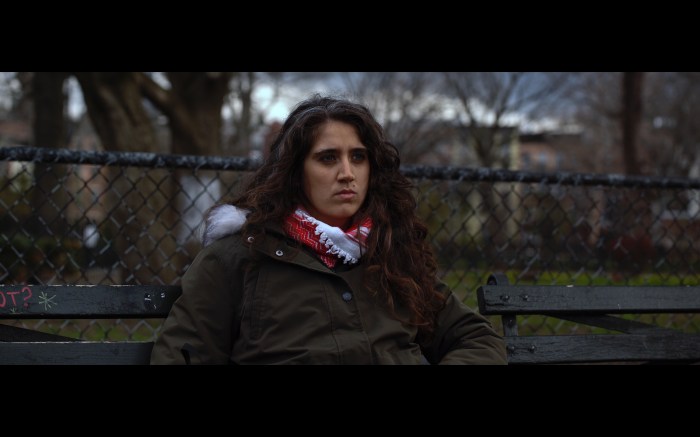
City Councilman Jumaane Williams defeated 16 candidates on Tuesday to become New York City’s public advocate.
New Yorkers cast their ballots in a special election that was triggered in January when Letitia James left the office to become the state attorney general. Williams, a Democrat, won the election with 33 percent of the vote and 98 percent of precincts reporting as of Wednesday morning, according to Board of Elections results.
"I’m a little bit in shock, so you’ll have to bear with me," Williams said during his victory speech in Brooklyn. "I’m honored to be serving as your next public advocate."
Williams will hold the position at least until the end of this year. There will be a primary in June and a general election in November to determine who will complete the full term left open by James.
The Brooklyn councilman faced stiff competition from his rivals, including current and former elected officials, attorneys and activists. City Councilman Eric Ulrich, the only Republican holding an elected office to seek the position, conceded to Williams on Tuesday night with 19 percent of the vote.
"I think we put up some good numbers tonight, I think we had a great turnout," Ulrich told NY1, adding that he spoke with Williams via telephone and congratulated him. "I told [Williams] I would work with him to make sure that he’s successful."
Mayor Bill de Blasio also congratulated Williams: "As a former public advocate, I know first-hand how important this office is to our city. The public advocate holds our entire city government accountable and amplifies the voices of all New Yorkers. I look forward to working with Public Advocate Williams to continue making this the fairest big city in America."

Williams said Tuesday night that he ran for public advocate to be "the voice of the people," but said his activism alone won’t be sufficient to affect change in the city.
"It’s about our voices, together," which "can rise above politics, above pettiness," he said.
Williams said the city faces challenges that include "moving forward to solve the affordable housing and homelessness crisis," upending a "system of injustice that criminalizes black and brown communities" and making "our streets safer for all… not with over-policing but with investment in the people on the ground, doing work to save lives.
"We can create a New York City that is more just, equitable, affordable and accessible," Williams said in his victory speech.
Low turnout
With so many names on the ballot, voter turnout was an important factor in determining the race. New York has historically had low voter turnout, specifically for primaries and special elections.
That appeared to be the case at midday Tuesday.
A poll site worker at the Fashion Institute of Technology in Chelsea said fewer than 180 votes had been cast at the location by around 2 p.m. In the Financial District, Jason Moomjy, the coordinator of a polling site at 90 Trinity Pl., counted a little more than 30 ballots cast around 9:30 a.m.
"It’s been pretty light," said Moomjy, who has been working at polls for 14 years. "If it was a presidential election, we’d probably have over 100 by now."
The public advocate is the city’s second-highest office. If de Blasio is temporarily unable to carry out his responsibilities, Williams would now be the first person in line to assume those responsibilities until the mayor returns.
While the public advocate’s primary role is to act as a check on the mayor and on city agencies, the office holds little power to compel change without assistance from the City Council.
In a questionnaire that 15 of the candidates filled out for amNewYork during their campaigns, Williams said his first move, if he won the office, would be to "hire a staff as diverse as our city." He also said he was "unequivocally" not interested in running for mayor in 2021.
